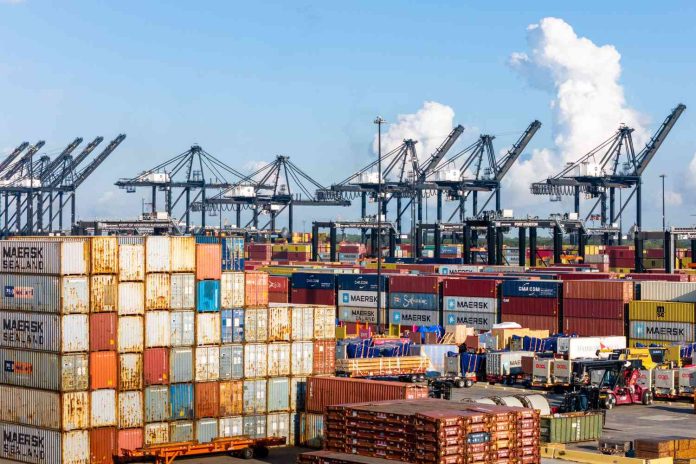U.S. East Coast and Gulf Coast dockworkers began their first large-scale strike in nearly 50 years on Tuesday, halting the flow of about half the country’s ocean shipping, after negotiations for a new labour contract broke down over wages. The strike blocks everything from food to automobile shipments across dozens of ports from Maine to Texas, a disruption analysts warned will cost the economy billions of dollars a day, threaten jobs and potentially stoke inflation.
President Joe Biden and his administration have repeatedly said they will not use federal powers to end the strike, and on Tuesday pressured dockworker employers to bump up their contract offer to land a deal. The sides are talking to each other, but there was no active bargaining late on Tuesday and the strike appeared to be headed into a second day, a person briefed on the talks said. The International Longshoremen’s Association union, which represents 45,000 port workers, had been negotiating with the United States Maritime Alliance (USMX) employer group for a new six-year contract ahead of a midnight Monday deadline.
The ILA said in a statement it shut down all ports from Maine to Texas at 12:01 a.m. ET (0401 GMT) after rejecting USMX’s final proposal, adding the offer fell “far short of the demands of its members to ratify a new contract”. The ILA’s leader, Harold Daggett, has said employers such as container ship operator Maersk (MAERSKb.CO), opens new tab and its APM Terminals North America have not offered appropriate pay increases or agreed to demands to stop port automation projects that threaten jobs. “We are prepared to fight as long as necessary, to stay out on strike for whatever period of time it takes, to get the wages and protections against automation our ILA members deserve,” Daggett said on Tuesday.
USMX said in a statement: “Our current offer of a nearly 50% wage increase exceeds every other recent union settlement, while addressing inflation and recognizing the ILA’s hard work to keep the global economy running.” Daggett said the union is pushing for more, including a $5 per hour raise for each year of the new six-year contract.
The White House weighed in, saying it was time for USMX to negotiate a fair contract for workers. “Shippers have made record profits since the pandemic, and, in some cases, have seen profits grow in excess of 800%,” White House press secretary Karine Jean-Pierre said, referring to a boom in shipping demand since the COVID-19 pandemic. “It’s only fair that workers who put themselves at risk during the pandemic to keep ports open see a meaningful increase in their wages, as well.”
Acting Secretary of Labor Julie Su said the employer group has “refused to put an offer on the table that reflects workers’ sacrifice and contributions to their employers’ profits.” “The parties need to get back to the negotiating table, and that must begin with these giant shipping magnates acknowledging that if they can make record profits, their workers should share in that economic success,” she said.
The strike, the ILA’s first major stoppage since 1977, is worrying businesses that rely on ocean shipping to export their wares or secure crucial imports. It affects 36 ports – including New York, Baltimore and Houston – that handle a range of containerized goods from bananas to clothing to cars. Transportation Secretary Pete Buttigieg on Tuesday called on the ocean carriers to withdraw surcharges they may impose in the wake of the strike. USMX declined to comment. The walkout could cost the American economy roughly $5 billion a day, JP Morgan analysts estimate.
Reuters




















